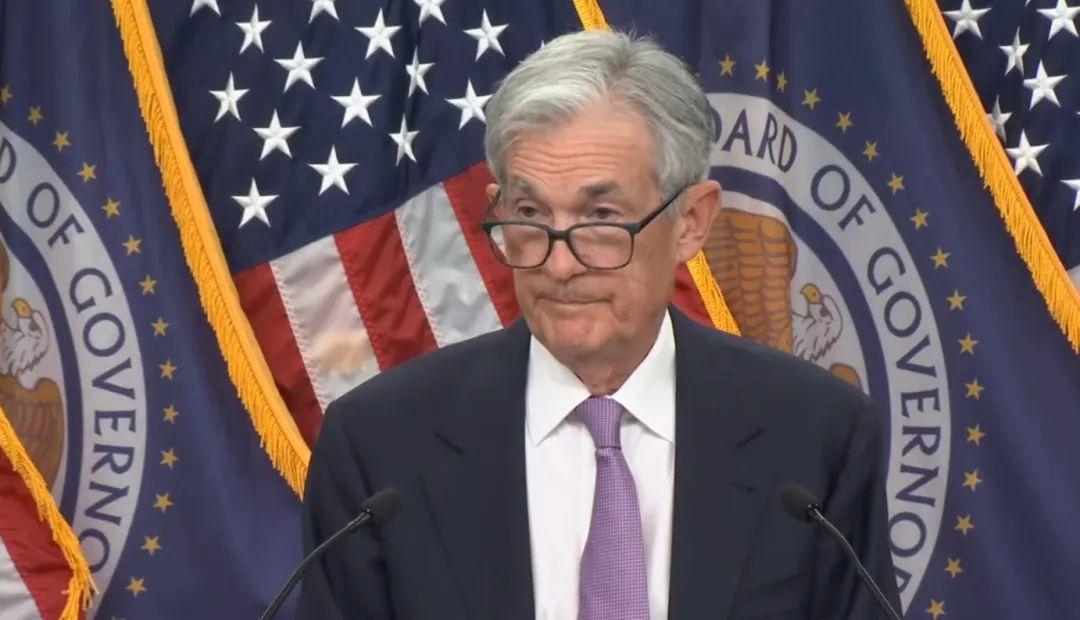The Democratic Party and the Republican Party have shown distinct differences in their priorities regarding cryptocurrency policy, regulatory direction, and tolerance for innovation.
Written by: Chandler, ForesightNews
The countdown to the 2024 U.S. presidential election has begun.
According to data from NBC News, as of 2:00 AM local time on October 30, over 50 million voters across the country have cast early votes for the 2024 presidential election.
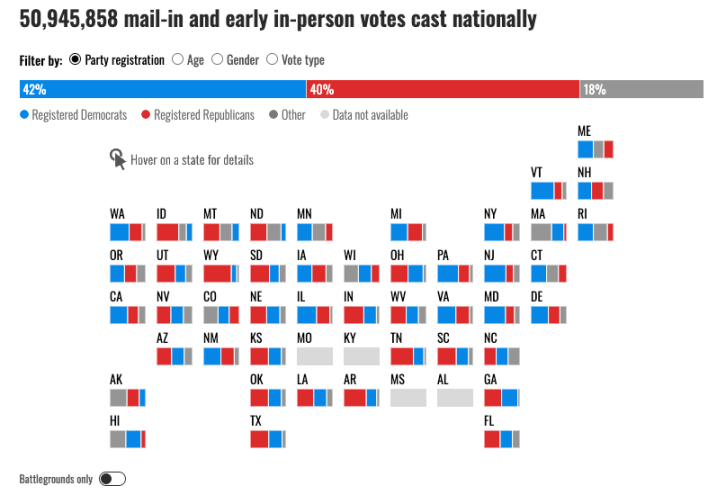
As the election battle intensifies, the issues that voters are concerned about are gradually focusing on the future direction of the U.S. economy and the policy choices that diverge. Morgan Stanley analysts Monica Guerra and Daniel Kohen analyzed the potential impact of the 2024 U.S. presidential election on the market in a recent report, pointing out that economic signals are mixed, leading to increased uncertainty for investors.
Fluctuations in consumer sentiment and persistently high prices are affecting voters' views, while traditional market indicators fail to provide clear predictions for the election outcome.
Due to the volatility in consumer confidence and ongoing price pressures, economic signals remain complex, and the delays in the election and the tense situation in swing states have further heightened market volatility expectations. The differences and divergences in policies between the two parties will undoubtedly become key discussion points in this context.
According to Coindesk, citing a new poll from Fairleigh Dickinson University, cryptocurrency holders indicated they are more likely to vote for Trump rather than Vice President Harris. Half of cryptocurrency holders stated they plan to vote for Trump, while only 38% prefer Harris.
Among non-cryptocurrency holders, Harris leads by 12 percentage points: 53% of non-cryptocurrency voters said they would vote for Harris, while 41% plan to vote for Trump.
Additionally, a mid-year poll report from Grayscale showed that over the past six months, due to geopolitical tensions, inflation, and dollar risks, voters have become more focused on Bitcoin. Due to macro dynamics and the maturity of Bitcoin itself, nearly half of the voters (47%) increasingly expect some of their portfolios to include cryptocurrencies (up from 40% at the end of last year).
Similar to the first phase of polling this year, respondents listed inflation as the top issue in the election (28%), further emphasizing the potential value of assets like Bitcoin that have transparent and strictly limited supply.
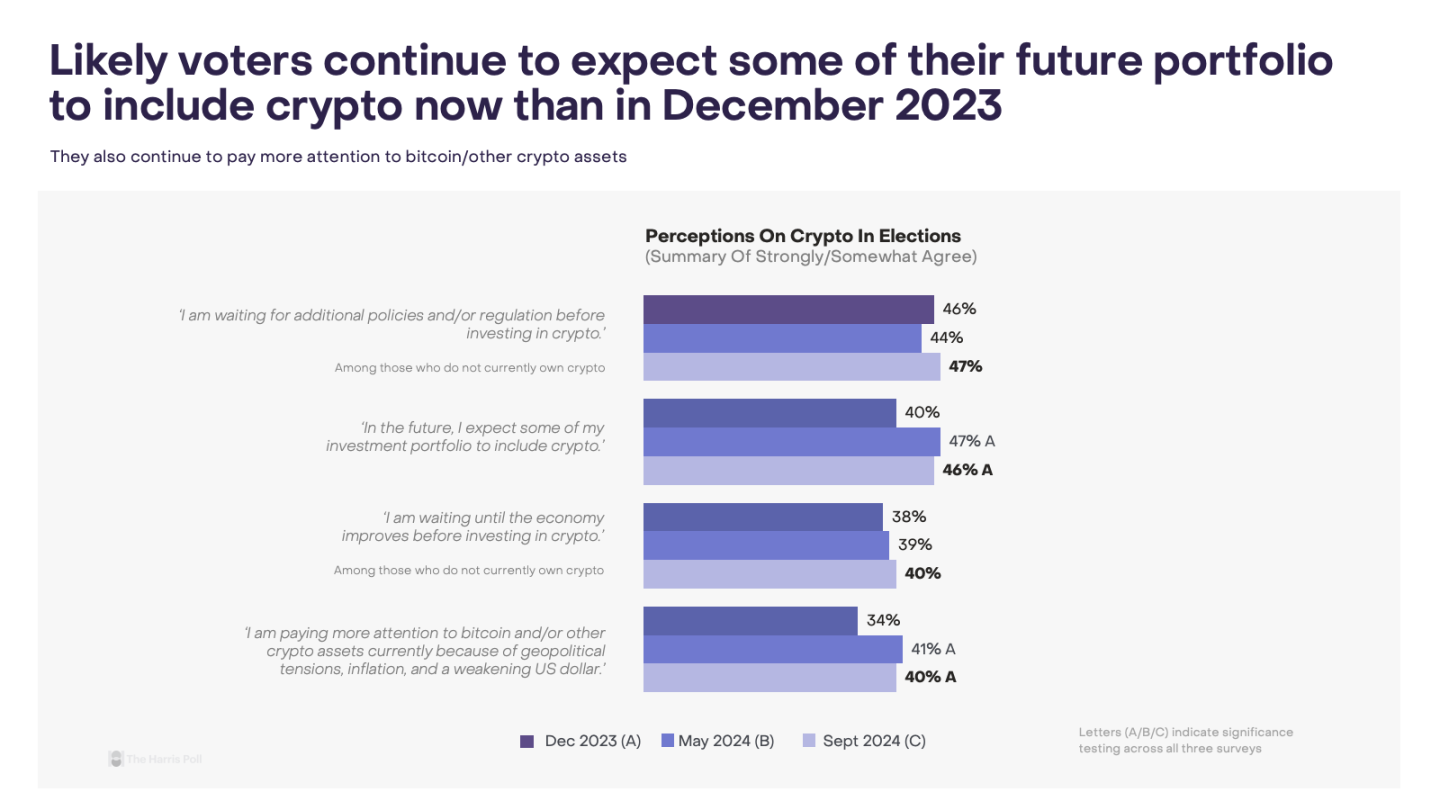
In this U.S. presidential election cycle, the political influence of the cryptocurrency industry is not only reflected in the expanding voter base but also in the growing weight of political donations.
Data shows that as of July 2024, the cryptocurrency political action committee (super PAC) Fairshake has raised over $200 million, making it one of the largest super PACs, with over $25 million raised in June alone. In August, Fairshake announced it would spend $25 million on television advertising campaigns to support 18 House candidates from both parties.
Furthermore, according to data released to the public by the Federal Election Commission on Sunday, the cryptocurrency political action committee PAC Fairshake allocated nearly $29 million in September, making it one of the highest spending organizations across all industries in this election cycle. Of this, $15 million was donated to the "Defend American Jobs PAC," which focuses on cryptocurrency and blockchain policy and supports the Republican Party; $5 million was donated to the "Protect Progress PAC," which only supports the Democratic Party.
Fairshake also donated over $1.9 million to Congressman Patrick Ryan (Democrat, New York), over $1.7 million to Congressman Steven Horsford (Democrat, Nevada), and nearly $1 million to Congresswoman Angela Dawn Craig (Democrat, Minnesota). The remaining funds were donated to multiple candidates in Illinois, Colorado, Oregon, Iowa, and Arkansas.
In this context, cryptocurrency assets, as an emerging financial and technological force, are entering the political agendas of both parties in a significant way, becoming one of the key factors influencing candidates' policy statements. However, the Democratic Party and the Republican Party show distinct differences in policy priorities, regulatory direction, and tolerance for innovation, which is also one of the important reasons this election will impact the future development of the cryptocurrency industry.
Democratic Party's Stance and Policy Orientation on Cryptocurrency: Cautious Regulation
During the Biden-led Democratic administration, the U.S. regulatory stance on the cryptocurrency industry has been primarily cautious, aiming to improve regulations and maintain market order. In March 2022, Biden signed an executive order titled "Ensuring Responsible Innovation in Digital Assets," marking the first formal proposal by the U.S. government for a strategic framework for the cryptocurrency industry.
The order directed federal agencies to conduct a comprehensive review of the potential risks and regulatory needs of digital assets, and in September 2022, a detailed framework for the development of digital assets was released, further clarifying the regulatory direction.
This cautious attitude has also been profoundly influenced by the previous bear market and the chain reaction triggered by the FTX collapse. The "2023 Economic Report of the President," released in March 2023, provided a harsh assessment of the value and risks of cryptocurrency assets, stating that these assets "carry excessive risks and are difficult to serve as payment tools or effectively expand financial inclusion," warning that such assets may pose ongoing risks to financial markets, investors, and consumers.
Subsequently, the U.S. Securities and Exchange Commission (SEC) and the Commodity Futures Trading Commission (CFTC) launched strict enforcement actions against cryptocurrency companies such as Binance, Kraken, and Coinbase, reflecting the Biden administration's high concern for industry risks and strong intent to regulate market order.
In 2024, the Democratic Party's regulatory stance on the cryptocurrency industry is gradually shifting, with internal divisions on cryptocurrency positions no longer being uniform. The strict regulatory approach promoted by progressives like Senator Elizabeth Warren is no longer receiving widespread support. Some Democratic lawmakers are gradually leaning towards a more pragmatic attitude, recognizing the negative impacts of restricted innovation.
On May 16, 2024, a group of Democratic senators joined Republican senators to pass a bill to repeal SAB 121, which originally required banks holding cryptocurrency assets to maintain equivalent cash reserves, placing a significant burden on financial institutions. The move to overturn SAB 121 is seen as a new trend of opposition within the Democratic Party against excessive SEC intervention, suggesting that the stance on cryptocurrency regulation is shifting from radical to neutral.
In addition, an increasing number of lawmakers within the Democratic Party are recognizing the economic and technological value of the cryptocurrency industry, especially the appeal of cryptocurrencies among young voters.
On May 23, the SEC's sudden shift in attitude towards spot Ethereum ETFs was interpreted as a friendly signal released by the Democratic Party under election pressure. Faced with Trump's open support for the cryptocurrency industry and the attraction of a large number of cryptocurrency voters, the Democratic Party had to reassess its stance on cryptocurrency policy to avoid losing the support of young voters and cryptocurrency industry practitioners.
Market signals and campaign pressures have also accelerated policy adjustments. The Democratic Party realizes that overly extreme cryptocurrency regulatory policies may lead to negative market reactions and weaken their support in key swing states.
On October 14, presidential candidate and Vice President Kamala Harris proposed a new plan to provide loans to Black entrepreneurs and others facing financing barriers. According to Harris's campaign outline aimed at attracting Black male voters, the plan will offer 1 million loans, with a maximum forgiveness of $20,000. Harris also promised to support a regulatory framework for cryptocurrencies, providing more investment certainty for 20% of Black Americans who own or have owned digital assets.
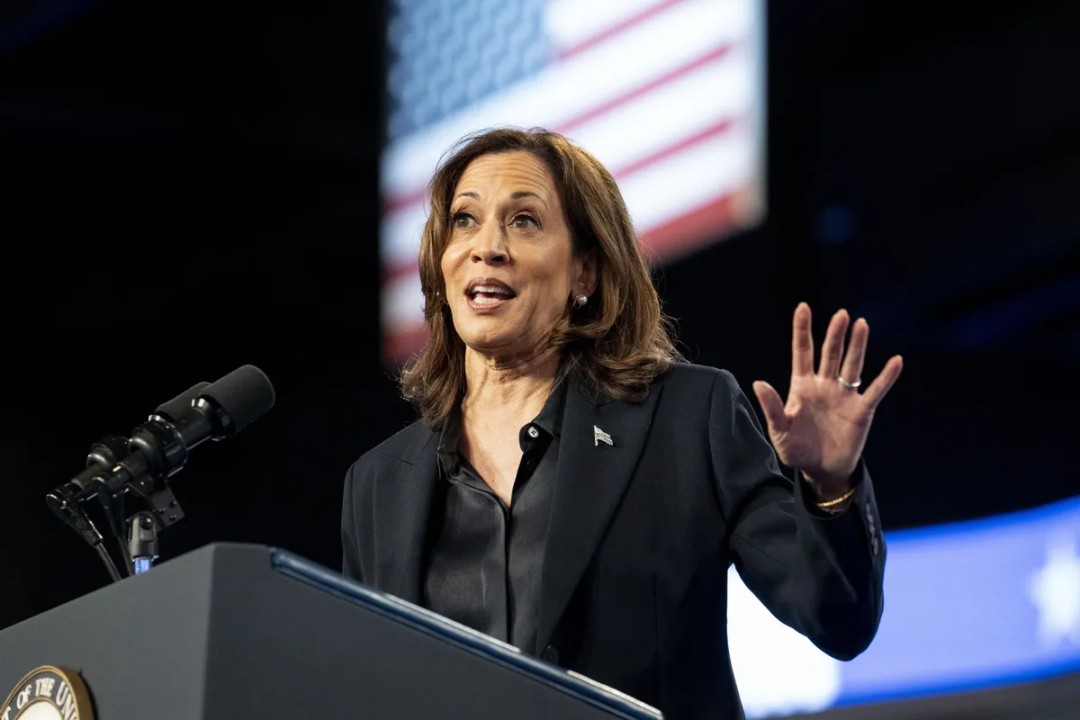
Additionally, California Governor Gavin Newsom is seen as an important supporter within the Democratic Party's campaign team. In terms of cryptocurrency regulation, Newsom signed an executive order in May 2022 to establish a licensing framework for cryptocurrency companies in California. Although he vetoed a bill aimed at establishing a cryptocurrency regulatory framework in September 2022,
he signed the "Digital Financial Assets Act" in October 2023. This act is widely regarded as a counterpart to New York's BitLicense system, indicating that California is competing with New York in cryptocurrency regulation, striving to take a leading position in this emerging industry. Among potential Democratic candidates, Newsom may be the leader most knowledgeable about the cryptocurrency industry, suggesting he may possess strong policy-making capabilities and be willing to collaborate with the cryptocurrency industry to jointly develop national-level policies and educational programs.
Overall, the Democratic Party's regulatory stance on the cryptocurrency industry has gradually shifted from radical to neutral in recent years. However, despite some loosening in regulatory policies, the Democratic Party still prioritizes traditional issues such as macroeconomic stability and social equity, and the cryptocurrency industry does not occupy a central position in its policy agenda, nor is it prominent in its policy priorities.
Republican Party's Stance and Policy Orientation on Cryptocurrency: Active Commitment
Trump has shown an exceptionally rare optimistic and friendly attitude towards the cryptocurrency sector in this presidential campaign. To garner more votes and economic support from the cryptocurrency sector, Trump's campaign team announced it would accept cryptocurrency donations, stating that this move is intended to unite those "opposed to the Biden administration's control of the U.S. financial markets."
According to a report by The Wall Street Journal, Trump's campaign team raised a total of $331 million in the second quarter, with cryptocurrency donations accounting for about 1%, most of which were Bitcoin and Ethereum, valued at approximately $3 million. Between May and the end of June, about 100 individuals donated cryptocurrency to Trump's campaign team.
In terms of specific policy support, the Republican Party expressed support for several favorable cryptocurrency policy measures in its official party platform for the 2024 U.S. election, vowing to end the "illegal and un-American crackdown" on the U.S. cryptocurrency industry.
At the same time, Trump appointed Ohio Senator J.D. Vance as the Republican vice presidential candidate. Vance, a former venture capitalist, has publicly supported cryptocurrencies multiple times and criticized the SEC's regulatory approach. Last month, he also drafted a legislative proposal to reform the regulation of digital assets. In his annual report submitted last year, he disclosed that as of 2022, he held Bitcoin worth between $100,000 and $250,000 through Coinbase.
Trump himself attended the 2024 Nashville Bitcoin Conference on July 28, where he delivered a speech and clearly stated that if elected, he would fire current SEC Chairman Gary Gensler and significantly reform the regulatory policies on cryptocurrencies to free the industry from the current government's suppression.
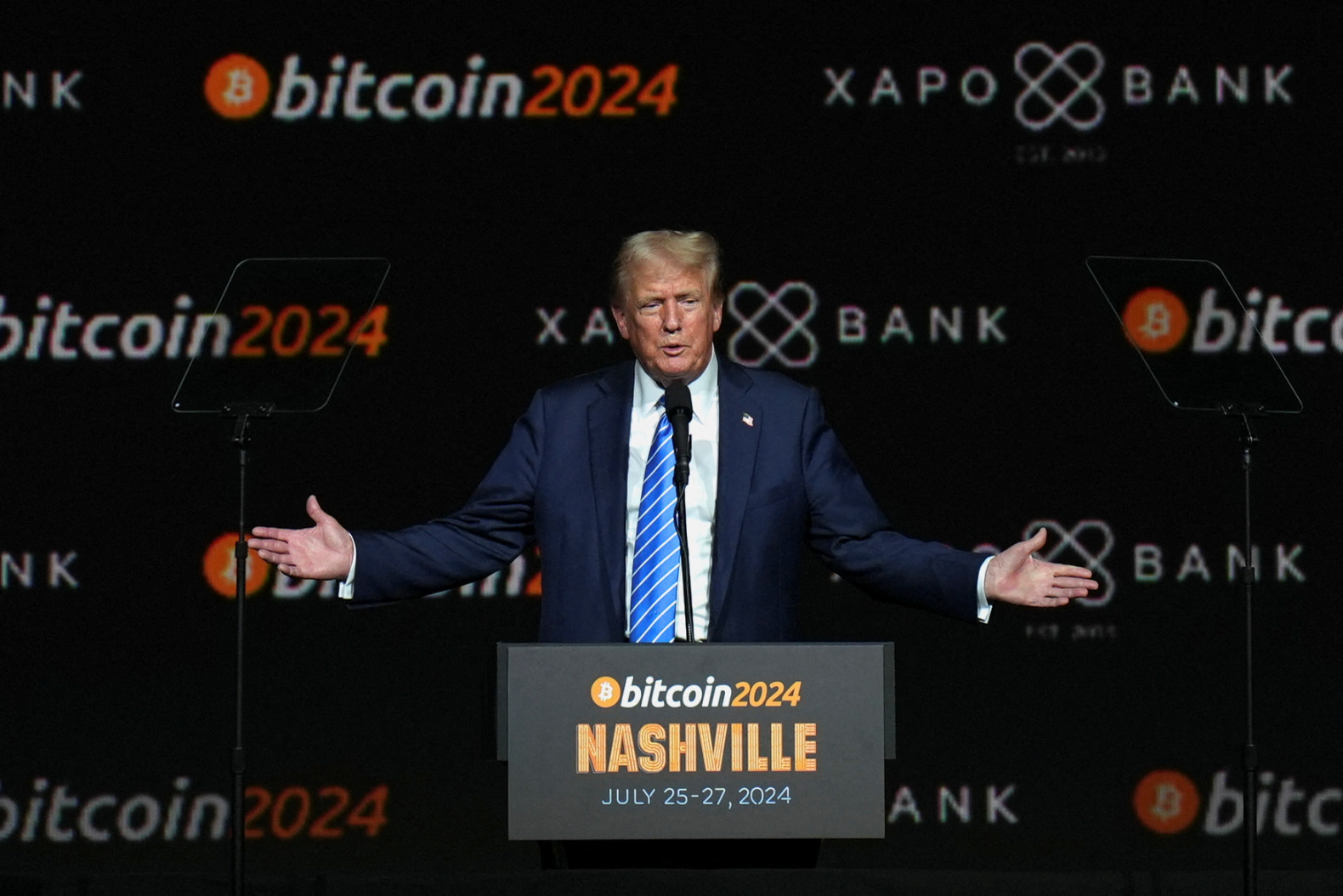
Trump promised to provide more power resources to Bitcoin miners, ensuring that the U.S. becomes the global center for cryptocurrencies. He compared the development of Bitcoin to the rise of the steel industry a century ago, believing that Bitcoin will bring tremendous potential and growth opportunities to the U.S. economy, just like the steel industry did.
Trump also praised the pioneers of the cryptocurrency industry, appreciating the "builder spirit" they embody, and emphasized that the U.S. should lead the future of Bitcoin, or else it will be surpassed by China and other countries. In his vision, the U.S. will become a global superpower in Bitcoin and cryptocurrencies, with American electricity and resources supporting this goal.
In his speech, Trump reiterated his strong opposition to CBDCs, promising to halt CBDC projects and defend citizens' rights to self-custody. He believes that decentralized assets like Bitcoin do not threaten the dollar; rather, they are important tools for maintaining U.S. financial sovereignty and freedom.
Trump made it clear that upon returning to the White House, he would stop the current government's "persecution" of the cryptocurrency industry, promote a fairer and clearer regulatory framework, and provide a stable environment for the industry's development. He proposed the idea of a Bitcoin strategic reserve, keeping the Bitcoin assets held by the U.S. as national permanent wealth. His commitment demonstrates the intention to incorporate Bitcoin and cryptocurrencies as part of revitalizing the "American Dream," providing strong support and trust to the Bitcoin community.
In addition, the Trump family has begun to refresh its presence in the cryptocurrency field. Trump's eldest son, Donald Trump Jr., and his second son, Eric Trump, are deeply involved in launching the cryptocurrency project World Liberty Financial (WLFI), with Trump himself serving as the "Chief Cryptocurrency Advocate," supporting the WLFI project, although he has not commented on the specifics of the project itself.
There are even reports that WLFI plans to issue its own stablecoin, which is still in development and may take some time to launch. The team is simultaneously developing the main project components of World Liberty Financial, including the stablecoin, to ensure these features are ready for launch at the appropriate time.
In this round, Trump has also formed a deep bond with Musk. Musk, an active advocate in the cryptocurrency field known for promoting Bitcoin payments and the use of Dogecoin (DOGE), resonates with Trump's policy inclinations. Previously, in Trump's campaign speech, he proposed establishing a "Department of Government Efficiency" (D.O.G.E.), planning for Musk to lead the agency to conduct a comprehensive federal government financial and performance audit to reduce wasteful spending.
Musk expressed support for this and promised to serve without compensation. The clever abbreviation of this agency echoes the name of Dogecoin, creating a pun that involves both politics and cryptocurrency, making their mutual inclination in the crypto field evident.
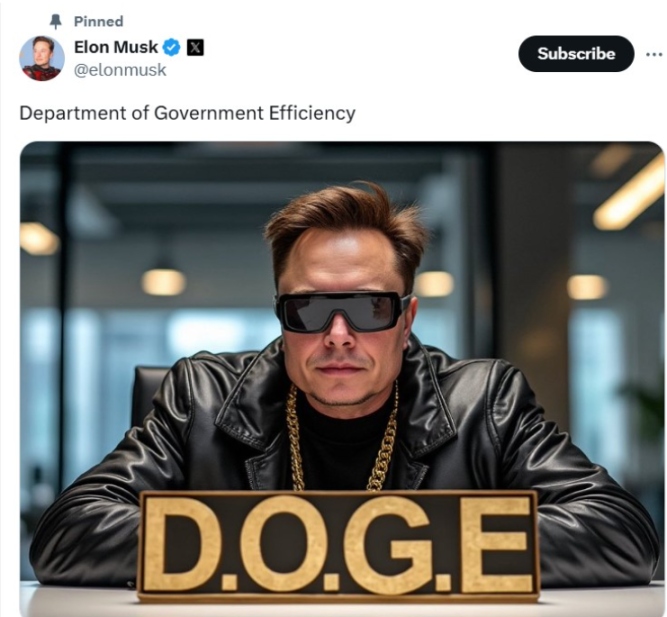
The Future Direction of U.S. Elections and Cryptocurrency Policy
In summary, the profound differences between the two parties in the U.S. regarding cryptocurrency asset policies significantly impact the future of this industry. The Democratic Party's policy stance leans towards caution, aiming to protect consumer rights and maintain market stability through strict regulation. Although it has gradually shifted towards neutrality in recent years, the Democratic Party's focus on the cryptocurrency industry remains limited, prioritizing overall economic and financial stability.
In contrast, the Republican Party advocates for reducing regulatory restrictions, committed to supporting innovation in the cryptocurrency industry, viewing it as a key avenue to enhance the U.S.'s competitiveness in global financial markets. Republican candidates like Trump are attempting to attract support from the cryptocurrency industry by actively endorsing Bitcoin and other crypto assets and promising to reform SEC regulatory practices, thereby accelerating the industry's development in the U.S.
These policy differences directly affect market dynamics. On one hand, if the Democratic Party continues to implement cautious regulatory policies, it may increase compliance costs for cryptocurrency companies and raise market entry barriers, potentially suppressing industry innovation. However, this approach might enhance market trust and strengthen investor protection, positively contributing to long-term stable development.
On the other hand, the Republican Party's lenient policies could accelerate capital inflow, promoting the U.S.'s leading position in global cryptocurrency innovation and attracting more projects to establish themselves in the U.S. However, a more relaxed regulatory environment may also come with higher risks, leading to increased market volatility.
The future direction of cryptocurrency policy is crucial for the U.S.'s position in global financial innovation. Among major economies, the U.S. faces fierce competition from Europe, Asia, and other regions in promoting fintech and cryptocurrency innovation. To maintain leadership in this emerging field, the U.S. may need to achieve bipartisan coordination in future policies to establish a more inclusive, transparent, and forward-looking policy framework.
At the same time, by coordinating the relationships between various regulatory agencies and industry organizations, the U.S. can strike a balance between ensuring innovation and managing risks, promoting the healthy development of financial innovation.
免责声明:本文章仅代表作者个人观点,不代表本平台的立场和观点。本文章仅供信息分享,不构成对任何人的任何投资建议。用户与作者之间的任何争议,与本平台无关。如网页中刊载的文章或图片涉及侵权,请提供相关的权利证明和身份证明发送邮件到support@aicoin.com,本平台相关工作人员将会进行核查。
